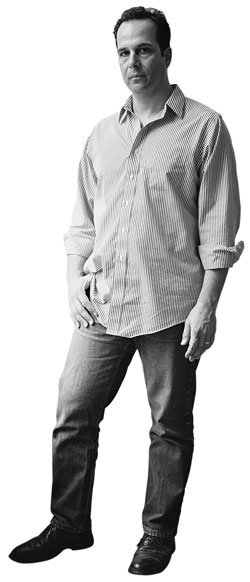When George Plimpton died, in 2003, the Paris Review’s board of directors was faced with the challenge of finding a replacement for an editor who was, in many ways, irreplaceable. Plimpton, who founded the Paris Review with Harold Humes and Peter Matthiessen in 1953, was the magazine’s public face for fifty years, a champion of literature, an adventurer and raconteur, a willing celebrity.

Brigid Hughes, a Plimpton protégé, was named editor in January 2004. One year later, however, the Paris Review’s board announced that her contract would not be renewed, stirring dissent among the magazine’s readers and contributors. No reason was given for Hughes’s dismissal, but Thomas Guinzburg, president of the board, told the New York Times it was “not a decision that was taken lightly.”
On March 17, Philip Gourevitch was named the third editor of the Paris Review, a choice that has proven uncontroversial. Gourevitch, a long-time staff writer for the New Yorker, has published both fiction and nonfiction, including the award-winning We Wish to Inform You That Tomorrow We Will Be Killed With Our Families: Stories From Rwanda (Farrar, Straus and Giroux, 1998) and A Cold Case (2001).
From the Paris Review’s new offices in lower Manhattan, Gourevitch spoke about the past and future of what Time called “the biggest ‘little magazine’ in history.”
How would you describe Plimpton’s Paris Review?
One of the things about the magazine was that it never became attached to a single moment or a single genre or a single movement or a single fad or a single school or a theory or a trend or an attitude or a posture or a polemic. In fact, it stayed free, and that’s an enormous accomplishment.
How have you had to adjust to a rather well-publicized shake-up at the magazine?
I haven’t had anything but enthusiasm and encouragement expressed to me about my coming on. Brigid Hughes was very gracious and encouraging and cordial when I came. If anything, I’ve been surprised and delighted by the sense of enthusiasm for the Paris Review’s vitality and longevity that I encounter just about everywhere.
What do you bring to the Paris Review from your experience as a journalist and political correspondent?
I’m pretty unafraid of the fact-checkable real world. And I think that’s actually a good thing when it comes to reading and writing and editing fiction. It’s been my experience over the years as a reader—and now even more so when I’m reading from the point of view of an editor—that even in the quite wild times we live in, not enough fiction is bold in its imagining of reality. The villains aren’t as villainous as real villains, and the lovers aren’t as overwrought as the lovers one meets in real life, and the people who do something that actually takes courage are not as courageous. The bloody-mindedness and the ruthlessness that one encounters in real life, the plots that one encounters as a reporter, the oversized, self-dramatizing characters, a kind of rawness and unsubtlety of expression, these things—they’re the raw material from which a lot of great fiction can come.
Among the changes you’ve said you’ll be making will be to the publication of poetry in the Paris Review—choosing more poems by particular poets.
We’re going to start trying primarily to publish poetry portfolios. In the past the approach has been to have fifteen, twenty, twenty-five poets in an issue sometimes, which often felt just like too many poems, from a reader’s point of view. And I feel this is sort of a disservice to readers, because it makes it difficult for a reader to kind of grasp anything. It’s also more interesting to poets to get a handful of poems published at a time.
Timothy Schaffert’s second novel, The Singing and Dancing Daughters of God, will be published by Unbridled Books this fall.








